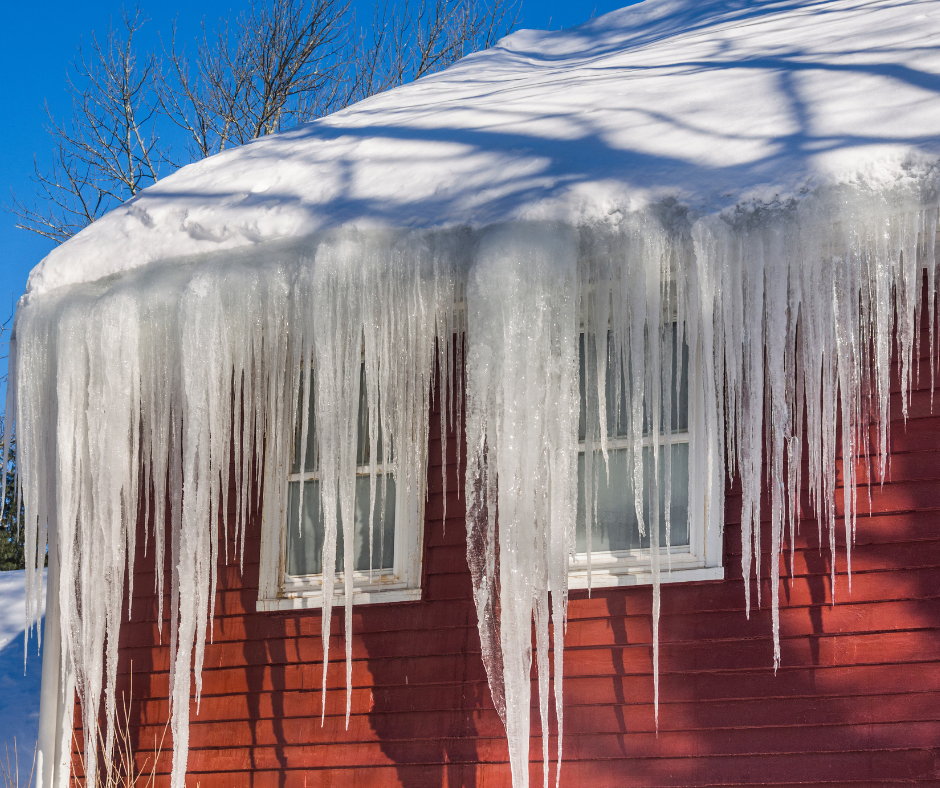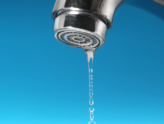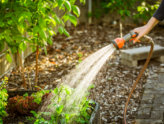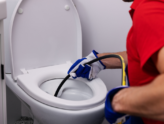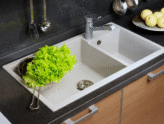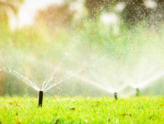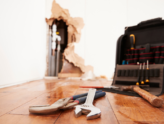How to Prevent Winter Plumbing Leaks and Water Damage
Winter brings many worries for homeowners. De-icing the driveway, preventing draughts, and servicing your chimneys can help soothe your anxieties about the effects of cold weather on your home. You mustn’t neglect your plumbing system when performing your winter checklist.
Which plumbing tasks should you add to your winter checklist?
Keep reading as we discuss how cold weather can lead to leaks and water damage and the steps you can take to weatherproof your plumbing system, prevent winter plumbing leaks, and enjoy the chilly festive season in peace!
How Does Cold Weather Affect Your Plumbing System?
Cold weather doesn’t just make your house a little chilly. It also affects your home’s plumbing and heating systems. Here are some of the effects cold and below-freezing temperatures can have on your plumbing system:
● Frozen pipes – it’s important to insulate your pipes to prevent the water inside them from freezing and expanding, which would lead to a burst pipe and potential leaks and water damage.
● Pipe contraction – when your pipes and plumbing installations are exposed to cold conditions, the material can contract and become smaller. This means that some of your plumbing fittings may become loose, leading to potential damage and leaks.
● Overworking the water heater – your heating system must work overtime in winter. Whenever you overwork a piece of machinery, there will be increased wear and tear, decreasing your water heater’s life span.
● Frost heave – when it reaches freezing temperatures outside, you might experience frost heave. This is when the ground rises up and expands. When it does, your pipes can move or elevate, disrupting the flow of water and leading to potential damage.
● Ice dams – an ice dam is a structure of ice that blocks the path of water draining from your roof. They could appear on the roof’s edge or within your gutter system. Stay wary of ice dams throughout the winter so you can spot them before there’s any water damage on your roof, which would lead to costly repairs!
● Exterior faucet freezing – if there’s any water in your exterior faucets, it’ll freeze when conditions get cold outside.
● Septic system complications – if you have a septic system or tank, the winter weather can be problematic. Break down septic waste requires the presence of bacteria. When it’s cold, bacteria move slowly, meaning it will take a long time to break the waste down. For this reason, stay vigilant of clogs in your septic system during the winter.
Taking a proactive approach to your plumbing reduces your chances of leaks and costly structural damage. With all of this in mind, it’s time to start your prep early and stay ahead of the colder weather.
How To Prevent Winter Plumbing Damage
Winter plumbing damage is the last thing you need after spending a bomb on your holiday celebrations and purchasing Christmas presents. Here’s everything you can do to avoid a costly disaster during the most heartening time of year.
Keep Your Heating On
Your heating should never be completely off during the winter. The cold will seep into your home, and your internal pipes and water systems could freeze. Keeping your home at a consistently mild temperature will prevent these damages.
Insulating Your Pipes
You can easily purchase pipe insulation to provide your pipes with protection from the cold. They’re easy to install, too, and look a lot like ‘pool floaties’ you might see at the local swimming baths. The foam rolls wrap around your pipes, locking in heat and preventing the cold from penetrating through to the water in your pipes.
Disconnect And Insulate Outdoor Water Sources
You likely won’t need to use your outdoor hose during the winter, and it would be tricky to do so if the weather were below freezing. So, you would benefit from disconnecting your outdoor water supply and insulating the outside pipes. Ensure your faucets are turned off and insulated before the winter comes.
Insulate Your Home
Insulating your home benefits you in several different ways:
● Heat savings – an insulated home retains heat better, so you will get the best benefit from your heating and make savings long-term.
● Protecting your pipes – if your home is properly insulated, the cold won’t creep into your crawlspaces and walls and affect your pipes.
● Saving your water heater – if your home is insulated properly, the heat loss savings mean less wear and tear for your water heater and more longevity for this home staple.
Choose Caldwell Plumbing for Superb Winterproofing Services
Before you start putting up your decorations for the winter festivities, you should take the steps listed above to make sure your festive season is a happy one. The last thing you want is a leak or burst pipe to dampen your spirits, especially when preventing them is so easy!
You can always count on assistance from our friendly plumbing experts at Caldwell Plumbing. Contact us today to learn how we can help you prepare for winter!

